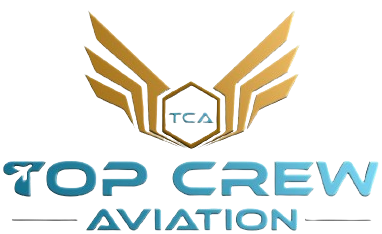
Before you take to the skies, every pilot must master theoretical knowledge—known as ground training or ground school.
Ground classes form the academic foundation of aviation. They cover everything from air law and navigation to meteorology and aircraft systems. The purpose is to prepare students to not only pass their exams but also develop a strong understanding of real-world flight operations and decision-making.
However, the approach, structure, and exam systems differ between DGCA, FAA, and EASA jurisdictions.
DGCA Ground Classes – The Indian System
The Directorate General of Civil Aviation (DGCA) governs all pilot licensing and training in India.
DGCA ground classes are mandatory for candidates pursuing licenses such as Student Pilot License (SPL), Private Pilot License (PPL), and Commercial Pilot License (CPL).
Subjects Covered in DGCA Ground Classes:
- Air Regulations – Aviation laws, ATC procedures, and ICAO rules.
- Air Navigation – Flight planning, instruments, charts, and calculations.
- Aviation Meteorology – Weather systems, pressure patterns, and flight safety.
- Technical General – Aircraft systems, aerodynamics, and performance.
- Radio Telephony (RTR-A) – Communication protocols and phraseology.
Exam and Evaluation:
- Conducted by DGCA every quarter (4 times a year).
- Students must clear all subjects within 30 months of starting their training.
- Exams are multiple-choice and require conceptual clarity and calculation skills.
DGCA Ground Classes at Top Crew Aviation
Top Crew Aviation provides online and offline DGCA ground classes, led by experienced instructors and airline pilots. The institute offers:
- Live and recorded sessions
- Mock tests and revision modules
- One-on-one doubt clearing
- Structured syllabus aligned with DGCA exam patterns
With a proven success rate, Top Crew Aviation has become one of India’s top-rated institutes for aspiring pilots.
FAA Ground Classes – The American System
The Federal Aviation Administration (FAA) regulates all pilot training and licensing in the United States.
Unlike DGCA, FAA ground school offers flexibility — students can either study at a Part 61 (non-academy) or Part 141 (approved school) institution, or even through online programs.
Subjects in FAA Ground Classes:
- Airspace and regulations
- Aerodynamics and aircraft systems
- Human performance
- Flight planning and meteorology
- Navigation and radio communications
Key Features of FAA Ground School:
- Students must pass the FAA Knowledge Test for each license (PPL, CPL, ATPL).
- The FAA exam system is performance-based, testing practical application more than rote memory.
- Ground training can be customized, and self-study is also permitted.
Advantages of FAA Training:
- High global recognition
- Cost-effective for international students
- Quick progression compared to EASA
- Integrated with real-world flight scenarios
EASA Ground Classes – The European Standard
The European Union Aviation Safety Agency (EASA) oversees pilot licensing across European countries.
EASA ground theory is regarded as one of the most comprehensive and rigorous systems in the world. It is mandatory under Part-FCL (Flight Crew Licensing) regulations.
EASA Theoretical Knowledge Subjects (14 in total):
- Air Law
- Aircraft General Knowledge
- Flight Planning & Monitoring
- Meteorology
- Human Performance
- Principles of Flight
- Operational Procedures
- Communications (VFR & IFR)
- Mass & Balance
- Performance
- General Navigation
- Radio Navigation
- Instrumentation
- Airframes, Systems & Powerplants
Structure and Assessment:
- EASA exams are standardized across member states.
- Theoretical classes are mandatory and often require 650–800 hours of study.
- Students must complete the theory within 18 months of the first exam attempt.
Why EASA Ground Classes Are Highly Valued:
- Global reputation for safety and depth
- Integrated with ATPL flight training
- Ideal for students who want to work with European or Middle Eastern airlines
DGCA Ground Classes vs FAA/EASA Ground Classes – A Detailed Comparison
| Feature | DGCA (India) | FAA (USA) | EASA (Europe) |
| Regulatory Authority | Directorate General of Civil Aviation | Federal Aviation Administration | European Union Aviation Safety Agency |
| Type of Exams | Quarterly written tests | Knowledge test (multiple-choice) | 14 theory exams |
| Flexibility | Fixed schedule | Very flexible | Structured and time-bound |
| Recognition | Valid in India | Widely recognized worldwide | Recognized across Europe & globally |
| Study Mode | Classroom & online (Top Crew Aviation, etc.) | Classroom / Online / Self-study | Mandatory theoretical instruction |
| Difficulty Level | Moderate | Practical-focused | Highly intensive |
| Career Opportunities | Airlines in India, Asia, and the Middle East | Global private/commercial aviation | European, Gulf, and international airlines |
Global Career Perspective
When comparing DGCA Ground Classes vs FAA/EASA Ground Classes, one must also consider career mobility and license conversion.
- DGCA to FAA/EASA: Requires knowledge exams and flight hour verification.
- FAA to DGCA/EASA: Easier conversion with additional written tests and validations.
- EASA to FAA/DGCA: Involves administrative verification and sometimes theoretical re-exams.
Understanding these pathways helps pilots plan their careers strategically—saving both time and money.
Which System Should You Choose?
Choose DGCA Ground Classes if:
- You plan to build a career in Indian aviation.
- You’re training under DGCA-approved institutes like Top Crew Aviation.
- You prefer structured study with national exam patterns.
Choose FAA Ground Classes if:
- You want quick progression and global exposure.
- You plan to work in the U.S. or train at FAA-accredited schools.
Choose EASA Ground Classes if:
- You aim to work with European or Middle Eastern airlines.
- You prefer a rigorous and globally standardized syllabus.
Read Also – How DGCA Ground Classes Prepare You for Pilot Exams
Top Crew Aviation – Your Gateway to DGCA Success
For Indian students, Top Crew Aviation stands out as one of the most reliable and effective platforms for DGCA Ground Classes.
Here’s why thousands of students trust Top Crew Aviation:
- Expert airline pilot instructors
- Comprehensive DGCA syllabus coverage
- Doubt-solving sessions and exam-focused training
- Online + Offline class flexibility
- Regular mock exams and performance tracking
Whether you’re preparing for CPL or ATPL exams, Top Crew Aviation ensures your foundation is strong enough to match global aviation standards like FAA and EASA.
Final Thoughts
The debate of DGCA Ground Classes vs FAA/EASA Ground Classes isn’t about which one is better—it’s about which one is right for your goals.
- DGCA focuses on Indian regulations and domestic airline careers.
- FAA offers global flexibility with practical and cost-effective learning.
- EASA provides deep, standardized theory ideal for major airlines.
Whichever path you choose, ensure your ground training is solid, structured, and backed by credible institutions like Top Crew Aviation—because a pilot’s strength lies not just in flying, but in understanding the science behind every flight.
Frequently Asked Questions
What are DGCA ground classes?
DGCA ground classes are theoretical training programs in India covering air regulations, navigation, meteorology, and aircraft systems, required for CPL, PPL, and ATPL exams.
How do FAA ground classes differ from DGCA classes?
FAA ground classes are flexible, focused on practical application, and regulated under Part 61/141, unlike the DGCA’s structured, exam-oriented syllabus.
What subjects are included in EASA ground classes?
EASA ground classes cover 14 subjects, including Air Law, Aircraft Knowledge, Navigation, Meteorology, Human Performance, and Operational Procedures under Part-FCL regulations.
Can DGCA ground training help me fly internationally?
Yes, but you may need to complete conversion exams and meet flight hour requirements for FAA or EASA license validation.
Why choose Top Crew Aviation for DGCA ground classes?
Top Crew Aviation offers expert instructors, online/offline classes, mock exams, and personalized support to help students pass DGCA theory efficiently.



